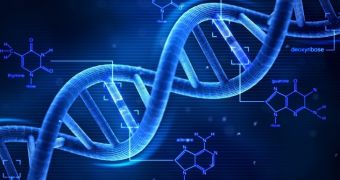Dr. Frankenstein might have been one really imaginative fellow and a heck of a scientist but, as it turns out, researchers with the Scripps Research Institute could teach him a thing or two about pushing new frontiers and toying with life on Earth.
Not to beat about the bush, these brainiacs have recently announced that they have successfully created a bacterium whose genetic makeup is nothing like the one of other life forms our planet currently accommodates for.
This is because this laboratory-made bacterium sports so-called alien DNA that no other organisms on Earth contain, the scientists explain in a paper published in yesterday's issue of the journal Nature.
In their paper, the Scripps Researcher Institute specialists explain that each and every strand of DNA in nature is made up of a backbone of sugar molecules and chemical subunits that are attached to it and that the scientific community calls bases.
These bases are adenine (A), thymine (T), cytosine (C), and guanine (G), and they bind DNA strands together. Thus, an A has been documented to always bind to a T on the strand opposite to it, and a C and a G have been shown to do the same.
The genetic material in the bacterium created by the Scripps Research Institute scientists contains these four bases, and an added pair that does not occur in nature and that the specialists tricked the micro-organism into accommodating for.
“Life on Earth in all its diversity is encoded by only two pairs of DNA bases, A-T and C-G, and what we’ve made is an organism that stably contains those two plus a third, unnatural pair of bases,” says study leader Floyd E. Romesberg, who led the research team.
Not at all surprisingly, it took scientists quite a while to find pairs of molecules that could function as DNA bases. They say that they have been working on this project since the late 1990s, and that they have only recently settled on two molecules known as d5SICS and dNaM as the unnatural base pair.
Interestingly enough, it appears that the E. coli bacterium that the researchers toyed with during their experiments is able to replicate its unnatural DNA bases, as long as it is provided with the molecular building blocks it needs in order to do so.
“This shows that other solutions to storing information are possible and, of course, takes us closer to an expanded-DNA biology that will have many exciting applications - from new medicines to new kinds of nanotechnology,” Floyd E. Romesberg comments on the importance of this achievement.

 14 DAY TRIAL //
14 DAY TRIAL //